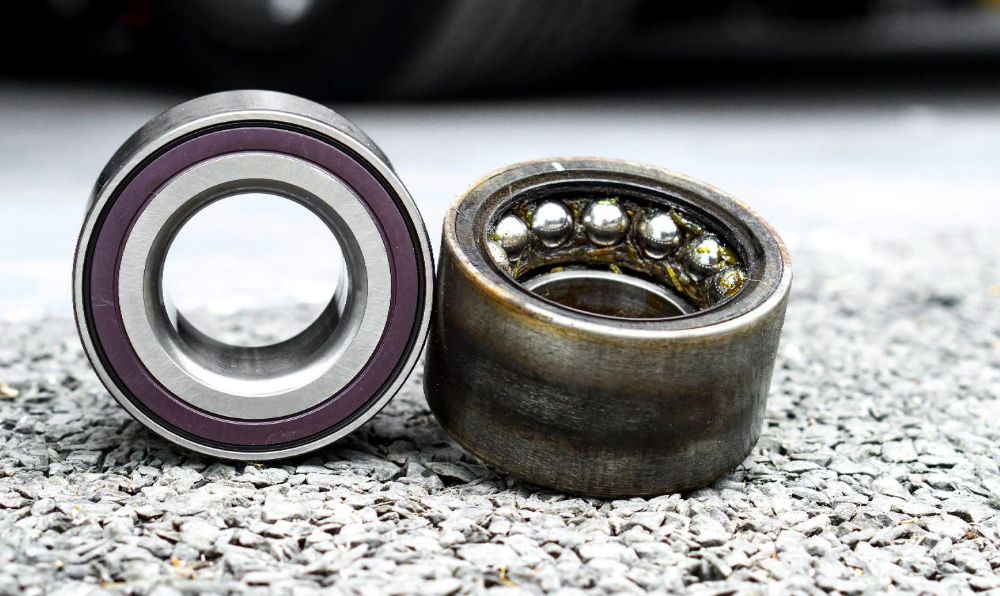Unveiling the Secrets of Car Wheel Bearings: Ensuring Smooth Rides and Reliable Performance in Car Suspension

Introduction:
Car wheel bearings play a crucial role in the smooth operation of a vehicle's suspension system. These often overlooked components support the weight of the vehicle and enable the wheels to rotate smoothly. Understanding the functions of car wheel bearings and recognizing the signs of failure is essential for maintaining optimal performance and safety on the road. In this article, we will delve into the world of car wheel bearings, exploring their anatomy, functions, maintenance, and common issues. Get ready to unveil the secrets behind these essential components that contribute to a comfortable and reliable driving experience.
1. What is a Wheel Bearing in a Car?
A wheel bearing is a vital component of a vehicle's wheel assembly, responsible for allowing smooth rotation of the wheels. It is a set of steel balls or rollers enclosed within a metal ring called the wheel hub. The wheel hub carrier, also known as the hub assembly, connects the bearing to the vehicle's suspension system. The bearing allows the wheel to rotate with minimal friction, supporting the vehicle's weight and transmitting the driving forces.
2. Signs of a Bad Wheel Bearing
Recognizing the signs of a failing wheel bearing is crucial to ensure the safety and reliability of your vehicle. Look out for the following indications:
- Unusual grinding, humming, or rumbling noises, especially during turns.
- Vibrations or wobbling sensations in the steering wheel.
- Uneven tire wear or excessive play in the wheel.
- Steering instability or a loose feeling while driving.
- ABS or traction control warning lights illuminated.
- Heat generation near the wheel assembly.
3. What Happens if Car Wheel Bearings Fail?
If wheel bearings are not promptly addressed, several negative consequences can occur:
- Increased friction and heat, leading to premature wear of the bearing components.
- Wheel misalignment, causing uneven tire wear and reduced handling capabilities.
- Loss of vehicle control, especially during turns or at high speeds.
- Severe damage to other wheel assembly components, such as the hub carrier and stub axle.
- Costly repairs, including potential damage to the braking system and suspension components.
4. Can You Drive a Car with a Bad Wheel Bearing?
Driving with a bad wheel bearing is highly discouraged. It compromises your safety and may lead to further damage. If you suspect a faulty wheel bearing, it is advisable to have it inspected and repaired by a qualified mechanic as soon as possible.
5. How Long Can I Drive with a Bad Wheel Bearing?
The exact duration one can drive with a bad wheel bearing varies depending on the severity of the issue. However, it is best not to push your luck and seek repairs as soon as you notice any signs of bearing failure. Ignoring the problem can result in more extensive damage and higher repair costs.
6. How Fast Do Wheel Bearings Go Bad?
The lifespan of a wheel bearing depends on various factors, including driving conditions, vehicle make and model, and maintenance practices. On average, wheel bearings can last between 100,000 and 150,000 miles. However, harsh driving conditions, inadequate lubrication, or contamination can accelerate their wear and shorten their lifespan.
7. Is a Wheel Bearing Easy to Fix?
Replacing a wheel bearing is a complex task that requires specialized tools and knowledge. It is recommended to have a skilled mechanic perform the repair to ensure it is done correctly and safely.
8. How Often Should Wheel Bearings be Replaced?
Wheel bearings typically do not have a specific replacement interval. However, they should be inspected regularly as part of routine vehicle maintenance. If any signs of wear or damage are detected, the bearings should be replaced promptly.
10. Should I Replace All 4 Wheel Bearings?
Whether to replace all four wheel bearings or just the affected ones depends on the specific situation. If only one bearing is damaged or worn out, replacing that particular bearing should be sufficient. However, if multiple bearings are showing signs of wear, it may be wise to replace all of them to ensure balanced performance.
11. Is Replacing Wheel Bearings Expensive?
The cost of replacing wheel bearings can vary depending on the make and model of your vehicle, the labor charges, and whether it includes the cost of the parts. It is advisable to consult with a trusted mechanic or repair shop to get an accurate estimate for your specific vehicle.
12. FAQ Section:
Q: What does a wheel bearing sound like?
A: A faulty wheel bearing can produce various sounds, such as grinding, humming, or rumbling noises. These sounds may become more pronounced during turns.
Q: How do I know if I need new bearings?
A: Signs that indicate the need for new wheel bearings include unusual noises, vibrations, steering instability, and uneven tire wear. If you experience any of these symptoms, it's recommended to have your bearings inspected.
Q: Can I replace a wheel bearing myself?
A: Replacing a wheel bearing can be a complex task that requires specialized tools and knowledge. It is generally recommended to have a professional mechanic perform the replacement for accurate and safe repairs.
Q: Can you check wheel bearings?
A: Yes, wheel bearings can be checked during a routine inspection by a qualified mechanic. They will examine the bearing for signs of wear, play, or damage and determine if replacement or further action is necessary.
Q: Do modern cars have wheel bearings?
A: Yes, modern cars are equipped with wheel bearings as an integral part of the wheel assembly. The design and construction of wheel bearings have evolved over time, but their fundamental purpose remains the same.
Q: What happens if you don't replace a worn wheel bearing?
A: Neglecting to replace a worn wheel bearing can lead to more severe damage and safety risks. It can cause excessive friction, heat buildup, misalignment, and potential damage to other components, such as the hub carrier and stub axle.
Q: Does a wheel bearing make noise when braking?
A: A faulty wheel bearing may produce noise when braking, especially if it is severely worn or damaged. However, it's important to note that braking issues can also be caused by other factors, such as brake pads or rotors.
Q: How does a mechanic diagnose a wheel bearing issue?
A: Mechanics diagnose wheel bearing issues by conducting a visual inspection, checking for play or looseness in the wheel, and listening for abnormal noises during a road test. They may also use specialized tools to assess bearing condition.
Q: Can a bad wheel bearing affect acceleration?
A: While a bad wheel bearing primarily affects wheel rotation and stability, severe cases of bearing failure can potentially impact acceleration. However, it is not a common symptom associated with bearing problems.
Q: How can you tell the difference between bad CV joints and bad wheel bearings?
A: Bad CV joints often produce a clicking or popping noise when turning, while bad wheel bearings tend to produce a grinding or humming noise that increases with vehicle speed. A professional inspection is recommended for an accurate diagnosis.
Q: How many wheel bearings does a car have?
A: The number of wheel bearings in a car depends on the vehicle's configuration. Most cars have at least two wheel bearings per wheel, one located in the front hub assembly and another in the rear.
Q: What is the cost of a car wheel bearing in the UK?
A: The cost of car wheel bearings in the UK can vary depending on factors such as the make and model of the vehicle, the quality of the bearings, and where they are purchased. It is advisable to check with local suppliers or consult a mechanic for accurate pricing information.
Key Takeaways:
- Car wheel bearings facilitate smooth rotation of the wheels, reducing friction and supporting vehicle weight.
- Signs of a bad wheel bearing include grinding noises, steering instability, and uneven tire wear.
- Driving with a faulty wheel bearing is unsafe and can lead to more severe damage.
- Regular maintenance and prompt repairs are crucial for ensuring the longevity and performance of wheel bearings.
- Replacing wheel bearings requires expertise and specialized tools, best left to professional mechanics.
Remember, maintaining healthy wheel bearings is essential for a safe and enjoyable driving experience. If you suspect any issues, don't hesitate to consult a professional for proper diagnosis and repairs.


